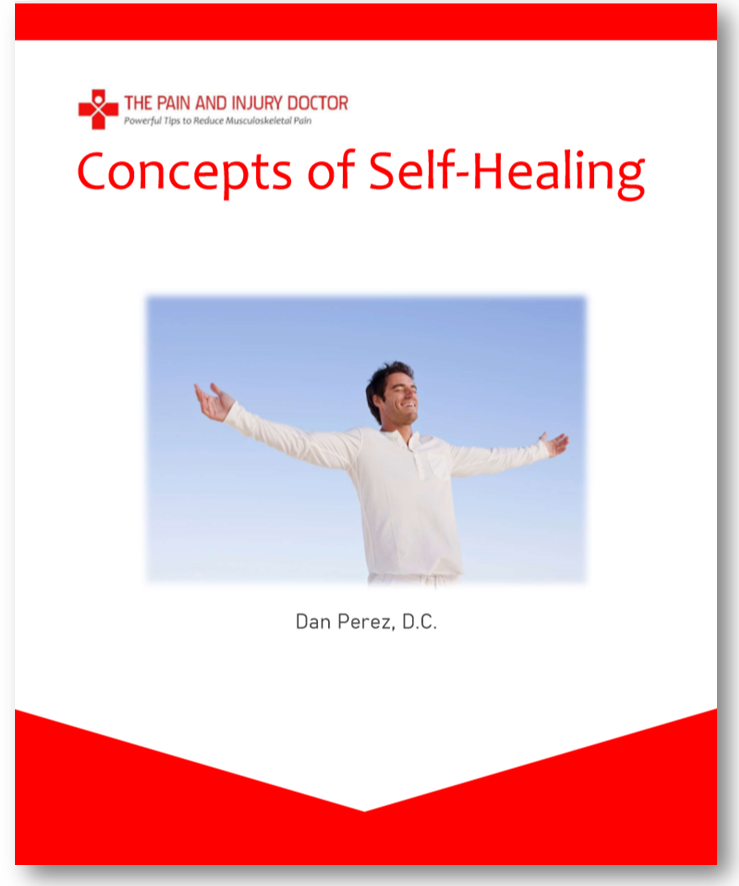 The Evolving Paradigm of Health Care
The Evolving Paradigm of Health Care
Health care. It’s one of those things that’s talked about regularly that carries sub-conscious assumptions.
I’d like to ask you today, “What does health care mean to YOU?”
You might say:
“Health care is being able to see a doctor whenever I need to, for a health-related complaint.”
Ok, fine. Let’s say you do. Now what?
You may then further elaborate, “Being able to ask the doctor what is causing the problem and what I need to do to get it fixed.”
Ok, you’re talking about getting a diagnosis and prescription. You ask the doctor about that nagging symptom, and he or she explains that it is being caused by a virus. Your doctor then writes a prescription and prints out a pre-written information sheet about your condition, which includes things you should do, and hands it to you and you are discharged.
That’s great. It’s reassuring to have access to a doctor whenever you are ill.
But, given all the tools that are available these days, was a doctor really necessary? Could a lower-cost nurse sufficed? Some RNs and Nurse Practitioners are very knowledgeable in disease signs, symptoms and treatment.
And did you know that there are some pretty accurate apps and websites (WebMD, ShareCare) that could have provided the same information to you in minutes, for FREE?
And, how much a month are you paying in health insurance to have this access? For my family, it’s $1,500/month and we’re all pretty healthy. Is it worth it?
My point here is that the old model of out patient service is getting a lot of challenges in this age of technology and big data access. It is time for people to start questioning how they wish to utilize, or “do” health care.
Another valid question is “Should this be called “sick care” instead?
After all, in this scenario the person seeks out the doctor AFTER the condition is already there; after he is ill or stricken with the malady.
So yes, a better description of this service is “sick care.” But although it’s a more accurate term, sick care sounds negative (which it is) compared to the term health care. When you hear the word health it evokes positive images like strength, energy, vitality and longevity. So don’t expect to see hospitals, doctors and insurance companies extolling their sick care services.
The Three Paradigms of Health Care Today
Returning to the questions “What is health care?” and “How should I use or do it?”, here’s another thing to consider:
Do you really need to take medicine, get a shot, see a physical therapist or get surgery?
Ok, in some cases you do; usually emergency cases like heart attacks and stroke.
The first paradigm of health care, which we’re all familiar with is having some procedure done to you by a medical professional. This is passive health care, where you receive it passively and includes taking medicine, getting surgery, and having therapy done on you.
The second paradigm of health care is the doctor or professional instructing you what to do to get well or for prevention; i.e. prescribing home care or lifestyle modification routines.
This is a big improvement from the first paradigm in the following ways:
(1) it gets you involved in your health, which trains you to be more responsible for your health and not reliant on a doctor;
(2) it is less expensive because you are in the doctor’s office less; and
(3) it is likely to be more effective and safer than visiting a hospital or taking medications.
Diet, exercise, home care strategies and other lifestyle modification interventions have a bigger, direct and longer-lasting impact on your health than medicine or passively receiving ongoing therapy (for a pain condition) such as physical therapy and chiropractic.
Medicines typically work by altering or “jury-rigging” your physiology to counter the symptoms you are experiencing, which gives the “illusion” of health. This is not natural, and there is almost always blow back by your body; i.e. side effects, some which create more problems (such as how taking Aspirin for pain can give you ulcers; or how taking too much Ibuprofen can cause renal failure).
Ongoing chiropractic or physical therapy is almost as bad, because anything passive risks your body becoming dependent or addicted to it, which again leads to blow back in the form of weakness and reduced coordination of muscle and joint systems.
Finally, the third paradigm of health care is when YOU get involved in researching your condition thoroughly, and then getting instruction on how to resolve your health condition from legitimate sources.
Now, this paradigm gives you the most freedom, but it also has some drawbacks. You need to learn how to differentiate between legitimate websites and the extreme ones. Health is an art as well as a science, so there are gray areas and some people are known to take excessive liberties in their writings about health.
Traditional medical websites obviously have an “allopathic medicine” bias. This is good in that the information is usually backed by research (evidence-based medicine), especially when on reputable, authoritative sites like Cleveland Clinic and Johns Hopkins.
(However, in recent years I have seen WebMD warm up to natural medicine; i.e. herbs and traditional natural remedies; although they are careful to use non-committal words and phrases such as “…may be helpful” and “…some anecdotal cases show that herb x reduced pain..”)
But the traditional allopathic websites are not as in-depth into alternative health favorites such as nutrition, herbs and things like electromagnetic therapy and grounding.
Then there are the alternative health websites. These sites are usually written by bloggers; some of whom have credentials (unfortunately, you will have to verify it yourself by doing internet research) and some who do not– just health enthusiasts who read other sites and report on them. Be more cautious about the information you get from these sites. That’s not to say that you can’t find useful information on some of them; some are really good despite being written by non-doctors.
Alternative health websites fit in better with this third paradigm of health care by virtue of the nature of alternative health, which essentially IS about implementing lifestyle modifications to achieve health from within. Things like diet, nutrition, herbs, exercise, breathing, meditation, massage, stretches, and using safe, energy emitting devices to enhance your body’s healing.
Fix chronic pain at home using nutrition, lifestyle modification and techniques used by physical medicine professionals.
Online medical consultation with real doctors.
Online medical consultations and prescriptions by real doctors.
Interactive symptoms checker and medical report and recommendations.
Mercola.com
The world’s largest natural health care website featuring articles on wellness, prevention and the dangers of common medical interventions.








